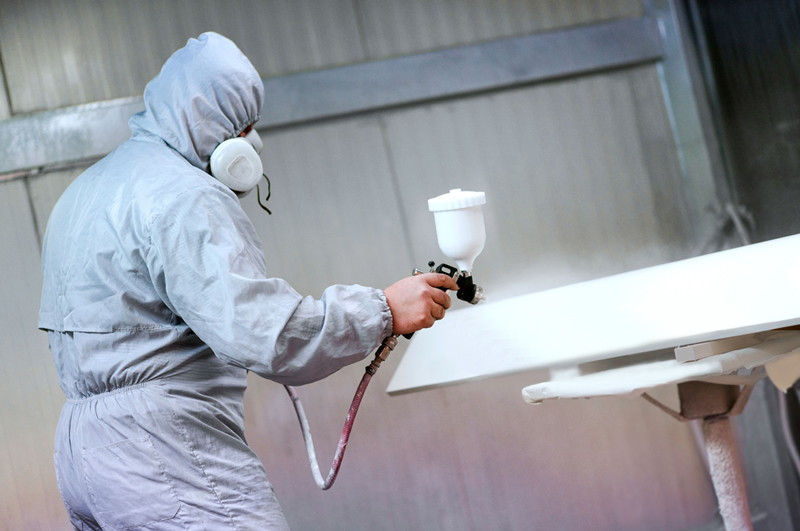Rosenberg’s energy efficient EC fans already fulfil the efficiency values of the ErP regulations. They are 100% ErP ready!
With the Ecodesign Directive 2009/125/EC (ErP Directive) the European Union has defined the requirements to the environmentally configuration of energy using products. This directive is part of the 20-20-20 target, according to which energy use shall be reduced by 20% and the share of renewable energies shall be increased by 20% until 2020. It replaces the EuP Directive 2005/32/EC which had only related to a selection of electrical products.

Concrete measures will be defined through more detailed regulations. In the first stage, starting January 01, 2013, fans in range of input power of 125W to 500kW have to meet specific values of efficiency. On January 01, 2015, the second stage with higher efficiency values enters into effect.
Thereby considered will be the entire fan, not just the single fan motor. Compliance with all efficiency requirements is condition for utilisation of the CE symbol.
- IEC-motors
Starting June 2011, IEC-motors have to comply with the requirements of the regulation (2009/640/EC) and have to reach at least efficiency class IE2 (earlier called: eff1).
IECmotors of a lower efficiency class will no longer be allowed to be marketed within Europe. Therefore Rosenberg has already completed converting all fans with IEC-motor to IE2-level. These are clearly indicated in the latest price list 2011.
- External rotor motor
External rotor motors are not affected by this regulation; they are usually used as fan motors and these fans have to comply to the ErP Directive for fans (2011/327/EC) with efficiency values starting beginning of 2013.
- EC technology
Rosenberg’s energy efficient EC fans already fulfil the efficiency values of the ErP regulations. They are 100% ErP ready!
In comparison to conventional AC fans, considerable higher efficiency levels of more than 90% will be reached due to the motor effectiveness. EC fans are easily speed controllable by the integrated electronics through which very high energy saving potentials can be achieved. As a result, the air volume can be adjusted to every possible operating point.
The integrated intelligent electronics does not only enable speed control but also additional functions like for example airflow-/pressure- or air quality-control. Rosenberg EC fans fulfil highest demands regarding energy efficiency and economic efficiency.
You will find further information on our EC standard fans in our brochure “Standard fans with energy efficient EC technology“ which we will send to you upon request. You will be able to find the pdf version on www.rosenberg.eu for download.
Are there exceptions?
For the time being, “yes”. Fans for high specification requirements such as ATEX, smoke extract, ambient temperatures above 100°C and fans for railway technology are excluded.
The following end products are also currently excluded - roof fans, duct fans, tube fans and box fans (e.g. Unobox and Zerobox).
In the future, these end products will be covered by a specific regulation. Nevertheless the motor/impeller combinations used in these fans will have to adhere to the existing efficiency values of directive (2011/327/EC) for fans.
Does existing equipment have to be retrofitted?
The answer is “no“. Existing equipment does not need to be retrofitted. Only fans and fan systems marketed within the EU after January 01, 2013 will be affected. There will be a transition period for replacement fans until January 01, 2015, for fans sold into the market before January 01, 2013.
Does the ErP Directive apply globally?
The Directive applies to energy consuming products, which are produced in the EU or imported into the EU.
It does not apply to products designated for export out of the EU. However it is assumed that this subject will become an issue in other countries in the near future.
Will fans become more expensive due to the new directive?
Costs for fans already compliant with the requirements will not increase with the introduction of the ErP Directive.
There may be additional costs associated with mandatory technical modifications for certain products, however a return on investment will be achieved in a short timescale by significant improvements in efficiency.
Eventually, the end user benefits from a reduction in energy consumption costs and the whole environment from reduced CO2 emissions!
How to identify ErP compliant fans?
Starting in 2013 you will be able to identify fans, which are compliant with the ErP Directive by the CE symbol placed on the product.
In addition, all Rosenberg fans will be marked with the “ErP ready“ logo on the product, in all Sales documents and brochures, as well as in the fan selection software RoVent.
What advantages does the Directive provide for me as customer?
With the application of this legal regulation only energy efficient fans will be able to be sold in the EU.
This will allow you to save up to 65% in energy costs, depending on the application and you don’t need to wait until 2013, energy efficient fans, especially with EC technology, are already available, today!
Does the ErP Directive also affect air handling units?
A preliminary study to evaluate the status quo and possible energy savings has already been commissioned by the EU.
This is to be finalized by the end of 2011 and, based on the findings, a regulation will be drafted.
However, air handling units are already affected through the motors used and, starting in 2013, through complete fans, because of the efficiency requirements in existing directives.
Besides air handling units (for non-residential use), this separate legislation will also deal with and impose limit values on small air conditioning units and heat recovery systems as well as the previously mentioned roof fans, duct fans, tube fans and box fans.
Active participation of Rosenberg
“The European Ventilation Industry Association” (EVIA) is the umbrella organization of the European ventilation industry.
Founded in July 2010, it is composed of three work groups for: “..ventilation units for residential appliances“, “..ventilation units for non-residential appliances” and “ ..fans”.
With the establishment of the EVIA, the requests and concerns of the European ventilation industry have been met with one voice in the European legislature and as a founding member of the EVIA, Rosenberg is participating actively in the composition of future European guidelines and regulations.







